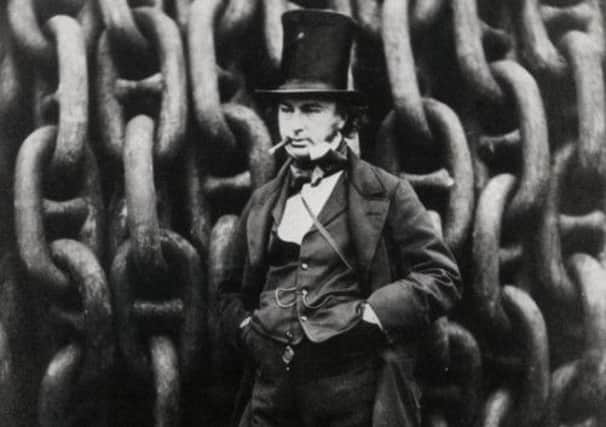Patrick McLoughlin: Victorian spirit needed to achieve HS2 goal


Now their names are famous. Men like Telford, Brunel and Stephenson. And now, their battles can seem straightforward. As if it was clear at the time that the doubters were wrong. As if the better future they shaped came into being easily.
But it wasn’t anything like that. These pioneers faced intense criticism. The defeat – for instance – of the first legislation to build a new rail line from London to Birmingham partly on the grounds that canals and turnpike roads were surely good enough for a growing economy. A line we still depend on today and call the West Coast main line. Much later on people questioned the M25.
Advertisement
Hide AdAdvertisement
Hide AdThese lessons from history teach us something important. Big decisions about big infrastructure are always controversial. People have always argued about the unknowns that big infrastructure proposals must always involve.
But controversy needn’t be a sign you are getting things wrong. Often it is a sign that you are doing something that really matters, in this case HS2.
People need to understand the seriousness of the choices we face as a country, and recognise that high-speed rail is not some untested fantasy but a reality in many of the world’s leading and fastest growing economies.
In Kent, the critics turned out to be wrong. It was the right decision to go ahead with HS1. It is always controversial when things are built. But then it turns out to be even more controversial to take things away once they are working.
Advertisement
Hide AdAdvertisement
Hide AdSo I ask now: are we sure that the call for retreat amounts to anything more than a repetition of a national loss of nerve? One that in the past has seen British governments cancel things like the Channel Tunnel, road and rail upgrades only to see them reinstated expensively many years later while our competitors race ahead?
The key challenge is this. Since 1970 the total distance we travel in Britain has more or less doubled. In coming decades that travel will go up again. Because there should be no doubt – the world is going to travel more.
Our competitors like China, and like Germany, are preparing for this. Leaping ahead with the best new technology.
In Britain we have built very little new infrastructure to support growth. In Britain we try to patch up what we have already got. We haven’t built a new main rail line north of London for almost 120 years. But there is a point when patching up isn’t enough. You just won’t get the capacity.
Advertisement
Hide AdAdvertisement
Hide AdWe’re reaching that point on links between our cities – and into them, too. The reason we need HS2 isn’t for its speed. It will allow you to get from Birmingham to Leeds in 57 minutes and from Manchester to London in 68.
The benefits of faster journeys are easy to explain. But the main reason we need HS2 is as a heart bypass for the clogged arteries of our transport system.
It will lift the burden from our overcrowded system. Because the point about High Speed Two is that you won’t have to travel on it to gain from the better transport system and economic growth it will support.
People who may never use the new line will still gain from more services for towns and cities up and down Britain. More room for local trains. More space for direct services to London from places that can’t get them today. More space for freight trains – to free up our motorways.
Advertisement
Hide AdAdvertisement
Hide AdBut people ask: do you really need a new line to get the capacity benefit? It’s a sensible question. We asked it too – before deciding HS2 was right. We’ve already spent £9bn on the last West Coast upgrade but that didn’t finish the job. The overhead wiring is getting on for 50 years old. The bridges and tunnels are Victorian monuments. Pouring billions more in widening it and accelerating it would be like trying to run the M1 up the Old Kent Road.
Without the capacity provided by HS2, the main road and rail lines linking eight of our 10 largest cities will quite simply be overwhelmed.
All our competitors around the world are preparing for this. We must too. The big choices we make about infrastructure today have a big effect on economic output tomorrow. And that is the benefit we will see from HS2.
Today you can get a reliable high- speed train from London to Brussels – but not Birmingham. Or to Lille – but not Leeds. That’s got to change. HS2 is our chance to level the playing field between north and south. It takes me back to where I began this speech. To that great Victorian spirit which gave us the infrastructure we still depend on today. We haven’t lost it. We can still do it. And with High Speed Two we will.
*Patrick McLoughlin is the Transport Secretary. This is an edited version of a speech on HS2 that he delivered yesterday to the Institution of Civil Engineers.